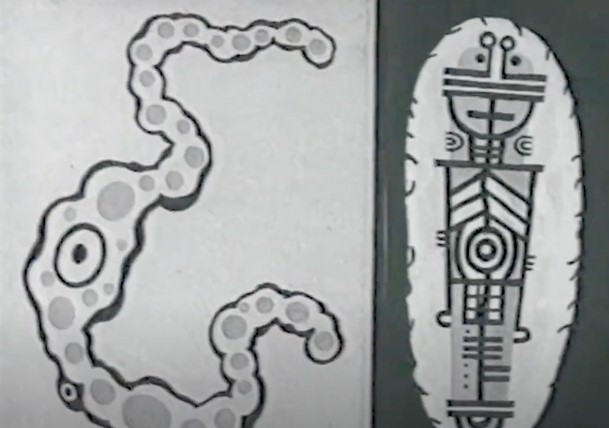Len Lye’s 1929 experimental animation, a work of avant-garde cinema, takes viewers on a mesmerizing journey through the imagined origins of life on Earth. Crafted almost a century ago, this black-and-white masterpiece unfolds as an eerie and slightly eccentric exploration of science, nature, and the evolutionary process. Lye’s simplistic animation, devoid of dialogue, remains a testament to his visionary creativity, as he envisions the evolution of single-cell creatures into more complex forms of life.
Accompanied by an original soundtrack by Jack Ellit and Florian Goltz’s additional musical accompaniment, the film weaves a narrative through its evocative imagery and storytelling prowess. The absence of dialogue enhances the film’s universality, allowing it to transcend language and communicate with audiences on a visual and emotional level.
Though the animation may appear rudimentary by today’s standards, its experimental nature and conceptualization of life’s beginnings make it a timeless piece of cinematic art. Lye’s avant-garde vision, complemented by Goltz’s musical reinterpretation, ensures that this silent journey into the genesis of existence remains an enduring and evocative work in the history of animation.


